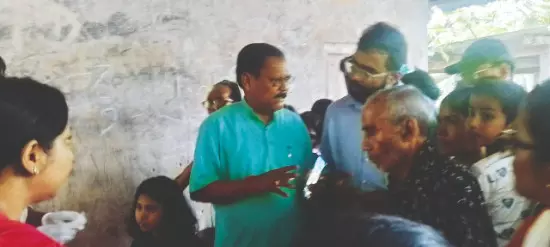Leptospirosis, Hepatitis-A outbreak sparks alarm in Chekanmari village

Jalpaiguri: Fear has gripped Chekanmari village under Sannyasikata Gram Panchayat in Rajganj block after confirmed cases of Leptospirosis and Hepatitis-A infections. On Monday, the Animal Resources Development department, Public Health Engineering (PHE) department and the Health department launched a joint investigation into the source of the outbreak.
The PHE has advised residents to stop drinking tubewell water immediately and has begun distributing packaged purified water in the area.
Chief Medical Officer of Health Dr Asim Haldar said health workers are conducting door-to-door surveys and screenings. Blood samples from several villagers have been sent to North Bengal Medical College. “So far, nine cases of Leptospirosis and six of Hepatitis-A have been confirmed. Those in need are being admitted to government health centres,” he said. District Magistrate Shama Parveen assured that the situation is under control.
“Safe drinking water is being supplied and residents have been strictly advised against consuming local water,” she said. During an inspection at a local poultry farm, officials from the Animal Resources Development department collected water samples suspected to be contaminated with rat urine, a known carrier of Leptospira bacteria.
These samples have been sent to the department’s laboratory in Kolkata for testing and may be forwarded to Bengaluru for further analysis if required.
Leptospirosis is an illness caused by the bacteria Leptospira. People can get leptospirosis after coming in contact with water or soil contaminated by animal urine. Deputy Director Dr Abhijit Mondal and District Veterinary Officer Subodh Paul confirmed spotting rats in and around the poultry farm, where wastewater drains create conditions for contamination. “During rainfall, rat urine can easily mix with water, increasing the risk of infection,” an official said. The PHE also collected tubewell water samples for bacterial analysis. “We can detect the presence of bacteria locally, but identifying disease-specific pathogens requires advanced testing. Until results arrive in two days, tubewell water remains banned for drinking,” said Executive Engineer Somnath Choudhury.
He added that both Leptospirosis and Hepatitis-A are waterborne and the poultry farm has been instructed to maintain strict hygiene.



